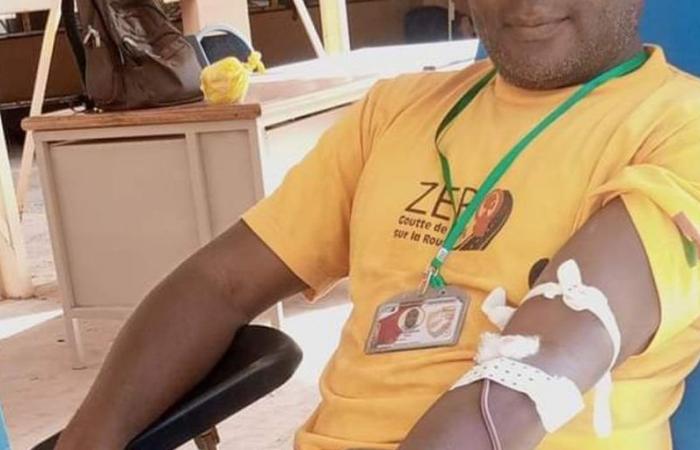“All citizens must mobilize around blood donation as they do around the issue of security. “, this is the appeal launched by Ali Kaboré, head of department at the Directorate of Communication and Promotion of Blood Donation (DCPDS) in Burkina Faso. The urgency is all the greater, he insists, as “the security crisis is causing an increase in the need for blood”.
National President of the SOS Sang association, Jean Bosco Zoundi agrees, emphasizing that “the impact of the crisis is negative on the mobilization of blood donors”. Also president of the Federation of Associations of Voluntary Blood Donors of Burkina (Fadosab), he explains: “we can no longer go to certain areas to collect blood, this mechanically reduces our scope of action and our capacity for mobilization”. And in the face of this, the National Blood Transfusion Center (Cnts) is in greater demand because “in addition to the sick, surgical interventions, childbirth and accident victims, blood bags are necessary for war wounded. »
The fight of associations against blood deficiency
For Burkina Faso, specifies Ali Kaboré, “the theoretical need per year is estimated at around 230,000 blood bags so that the population is protected from any shortage. » However, he regrets, “insufficient financial, material and human resources limit the Cnts collection objectives to 140,000 blood bags”. In view of this blood deficit aggravated by insecurity, he pleads – just like Jean Bosco Zoundi – for “an increase in the Cnts budget”. For the president of SOS Sang in fact, it is necessary to review “the national blood transfusion policy” which, he believes, “does not allow us to support associations” of donors.
Apart from its association, SOS Sang, recognized as being of public utility since 2015, all the others carry out their activities with the few resources at their disposal. And yet, “each year, associations contribute at least more than 20,000 blood bags” even though “the state gives us nothing in terms of support”. Ali Kaboré will not say the opposite, he who finds that “the contribution of associations and partners is very considerable”. According to him, these associations participate significantly “social mobilization of blood donors”. In 2023, he illustrates, more than a third of the pockets were collected thanks to these associations.
Stressing that the voluntary nature of blood donation does not erase the financial burdens linked to collection and awareness activities, the president of Fadosab wants to be clear: “our complaint to the State is to benefit from funding like other associations in the health field, particularly those working in the field of HIV and health insurance”.
A need to remobilize donors
Out of an approximate number of 150,000 donors, “young people donate much more blood, providing more than 50% of the bags collected each year”, according to the Cnts statistical service. If this is a positive point noted by Ali Kaboré, these statistics show an average donor loyalty rate of around 36% for the last three years. “Not all donors return for other donations and even those who do return do not respect the regularity of a donation every four months for women and every three months for men,” he explains.
In addition to the national situation, the current period marked by malaria is renowned “very challenging” in terms of collections. “We are entering a period ofedefi due to the fact that students are on vacation while 70% of donations come from educational establishment sites” admits Jean Bosco Zoundi. For him, “this is the right time for everyone in Burkina Faso to commit to donating because there is a pressing need.” If for his part, he believes that “all components of the nation must organize collections in their different communities”Ali Kaboré recalls that “The problem of donating blood concerns everyone and this gesture of solidarity gives hope of life to thousands of people in our health structures.”






